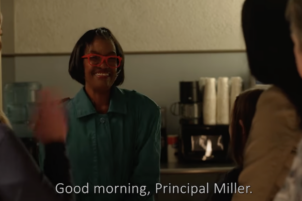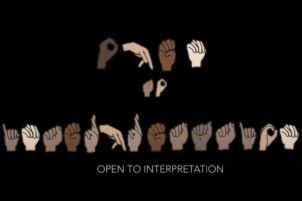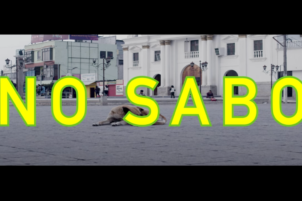TV content fosters a unique connection between audiences and characters, so it’s clear that people want to see themselves and their stories represented on screen. However, for TV to reflect audiences’ realities, the identities of TV writers need to reflect those of the population. While the disabled membership of the Writers Guild of Canada (WGC) has doubled from 0.6% in 2021 to 1.3% in 2022, Canadian disabled writers are underrepresented in every TV format in proportion to their population size.
Just 1.3% of WGC Membership are Disabled
According to the WGC’s newly released 2023 Equity, Diversity, and Inclusion Report, the total percentage of disabled members is still staggeringly low in comparison to the 22% of the population that disabled Canadians represent. In 2022, only 1.3% of total guild members were disabled writers.
However, there are reasons to be optimistic. Between 2018 and 2022, the WGC report showed a five-percentage point increase in new guild members who were disabled, growing from 2% of new members in 2018 to 7% of new members in 2022.
Only 2.5% of TV Writing Jobs Went to Disabled Writers
The WGC report found that along with Indigenous People, disabled people are the most underrepresented – and vulnerable – among working writers and writing jobs.
While the amount of TV writing jobs going to disabled writers did increase from 2020 – 2022, that percentage in 2022 was only 2.5%. This number is low in comparison to the 64.8% of TV writing jobs that went to white, cisgender, heterosexual, non-disabled working writers in 2022.
The report also measured the percentage of writers from historically marginalized groups who were “working,” as in engaged in WGC-contracted projects. Of note, a higher percentage of disabled writers worked in animation than live-action. 3.1% of guild members working in live action were disabled, compared to 4.2% for animation. Again, these numbers are still low when compared to the 57.4% of white, cis, hetero, non-disabled writers working in live action and 69.2% working in animation.
Because disability is intersectional, it’s important to advocate for representation of disabled characters on TV who are also members of other historically marginalized groups. To support diverse disability representation, it’s important to track the intersections of these identities. While the report didn’t break down disabled working writers by race/ethnicity/sexual identity, it did report on gender. In 2022, the report found that women made gains over men. Of the 3% of disabled writers working in TV in 2022, 2.3% were women, 0.5% were men, and 0.2% were nonbinary, bi-gender, or 2-spirit. This is an improvement from 2021 when no non-binary disabled working writers were reported.
Disabled Writers’ Earnings Represent Just 1.6%
In 2022, 3% of working writers were disabled, but disabled writers’ earnings represented only 1.6% of total earnings for TV writers. When looking at earning levels in the same year, the majority of disabled writers, meaning 1.1% of working writers, earned less than 10k in 2022. Only 0.3% of the working writers who were disabled earned over 200k in 2022. This is again low when compared to the 7.9% of white, cis, hetero, non-disabled working writers who made over 200k in 2022.
When broken down by gender, the report showed disabled women made up more of the earnings than disabled men. In 2022, disabled women represented 1.3% of the 1.6% of earnings from disabled writers. However, despite 0.1% of disabled working writers identifying as nonbinary, they represented no earnings in 2022.
When comparing earning levels to percentage of working writers in animation, the report found that writers of historically marginalized groups, including disabled writers, had a larger gap between the percentage of working writers and the percentage of earnings those writers claimed. The report hypothesized that this may be due to “a lack of minimums and a production fee in animation.” This is especially noteworthy since there are more disabled writers working in animation than in live action.
Lack of Writing Credits
Not only did disabled people make up a small percentage of writers rooms in 2022, but their percentage of writing credits was not proportional to the percentage of disabled people making up writers rooms. In 2022, disabled people made up 3.6% of live-action writers’ rooms, yet only 3.3% of writing credits went to disabled writers working in live-action. For animation, in 2022, disabled people made up 4.2% of animation writers’ room, yet earned only 2.5% of writing credits.
When looking at the gender breakdown of both live-action and animation writers’ rooms in 2022, there was a higher percentage of disabled women than disabled men or disabled nonbinary writers in writers’ rooms.
For live-action staffing credits in 2022, only 2% of writers who got executive producer credits were disabled. While this is an increase from 0% in 2021, it is still low. No co-exec producer credits went to disabled writers in 2022. The most common type of credit disabled people received was exec story credit and story editor credit, representing 5% of people who got exec story editor and story editor credit in 2022.
“To tell stories for all Canadians, we need proportional representation of disabled people in writers’ rooms,” said Heather Taylor, a Canadian writer who participated in RespectAbility’s Entertainment Lab in 2022. “22% of Canadians (1 in 5) are disabled, yet only 3% of working writers in Canadian TV are disabled. It’s encouraging to see the membership of disabled writers in the WGC has doubled from .6% to 1.3%, but we are still vastly underrepresented and have the fewest work opportunities. EVERY writers’ room should strive for at least one out of five writers to be disabled writers. I encourage showrunners and producers to drive that change and continue to advocate for more inclusivity and accessibility. They alone have the power to make it happen.”
Looking Toward the Future
To increase authentic representation on TV of disability and disabled stories, the representation of disabled writers working on TV must increase. RespectAbility aims to close the gap between the vast percentage of the population that disabled people represent and the small number of disabled writers currently working on TV through the RespectAbility Entertainment Lab for behind-the-camera disabled professionals.
Interested in the work of disabled Canadian writers? Check out Canadian writers who are alumni of the RespectAbility Entertainment Lab: Ophira Calof (2022), Trevor Finn (2023), Scott Jones (2022), Graham Kent (2022), Kimberly Manky (2022), Kitoko Mai (2023), Rabiya Mansoor (2023), Cheryl Meyer (2023), Shannon Rayne (2023), Julia Skikavich (2021), Heather Taylor (2022), and Cypher (2022).







